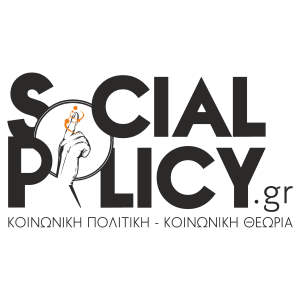Βραβείο 2021

Βραβείο 2022

Στρατηγικός συνεργάτης

Υποστηρικτές Επικοινωνίας


Open access article: https://link.springer.com/article/10.1007/s10803-023-06202-4
Abstract
This review aimed to identify the post-graduation training pathways available for both clinicians and trainers in the assessment and diagnosis of Autism Spectrum Disorder (ASD). The study was guided by two research questions: What is known about ASD-specific educational, training, or other pathways available to support clinicians of any discipline, post-graduation, to meet the required expertise relevant to assessments of ASD concerns? What is known about the educational pathways available to clinicians seeking to provide training to other clinicians, post-graduation, in the assessment of ASD concerns? A scoping review was undertaken with searches completed across five databases (PubMed, PsycINFO, PsycEXTRA, ERIC and CINAHL). A Google search strategy was also executed using the “advanced” search function. Eligible records were literature, written in English, that examined post-graduation training and/ or education of clinicians to assess and/ or diagnose ASD. Fourteen relevant records were identified. Post-graduate training has the potential to enhance clinician confidence and service provision in ASD assessment and diagnosis. System-wide training approaches show promise in building large-scale, diagnostic capacity and the use of tele-mentoring offers a cost-effective, convenient mode of training delivery. A lack of evidence to support ASD diagnostic training pathways was found and may pose a challenge for clinicians and service users. The limited evidence found suggests that high quality research will be fundamental in determining how to build clinician capacity in ASD assessment and diagnosis and to ascertain whether training pathways are a necessary component.
Citation: Curran, C., Roberts, R., Gannoni, A. et al. Training and Educational
Pathways for Clinicians (Post-graduation) for the Assessment and Diagnosis of
Autism Spectrum Disorders: A Scoping Review. J Autism Dev Disord (2024).
https://doi.org/10.1007/s10803-023-06202-4
Open access article: https://www.sciencedirect.com/science/article/abs/pii/S2214140524000276
Abstract
Individuals with autism often experience transportation challenges as primary barriers to essential community services such as health care and employment. Research of travel training interventions has identified evidence-based techniques for improving specific transportation-related competencies. Peer-mediated interventions are recognized as effective and when provided in natural social contexts. This study evaluated a peer-mediated travel training approach with adults with autism to provide and improve specific skills necessary for independent travel on public transportation.
This study aimed to evaluate the efficacy and feasibility of a systematic peer-mediated travel training to improve public transportation travel independence for autistic adults to increase their access to the community.
A randomized control trial (RCT) was used to determine the effectiveness of a peer-mediated travel training program on travel skills, community mobility goals, community participation, and self-efficacy for individuals with ASD. Measures including self-report, observational measures, and GPS data were collected at baseline and two weeks after the intervention. Data on community participation and self-efficacy was collected again 4 months post-intervention.
Analyses to compare group differences over time were completed. Pearson correlations were used to examine the associations between different constructs at baseline.
Seventy-five individuals were enrolled in the study, with 38 individuals in the control group and 37 in the experimental group. The group receiving peer-mediated intervention significantly improved the travel skills necessary for public transportation and community mobility (p < 0.0001), although there were no significant differences between groups in community participation or self-efficacy. Results identified that peer-mediated travel training was feasible for adults with autism.
The results of the current study identify promise for a comprehensive peer-mediated travel training intervention to improve travels skills and community mobility. Future research is needed that examines the implementation and effectiveness of different service delivery models such as peer versus staff-delivered interventions.
Citation: Beth Pfeiffer, Amber Pomponio Davidson, Eugene Brusilovskiy, Cecilia
Feeley, Moya Kinnealey, Mark Salzer, Effectiveness of a peer-mediated travel training intervention for adults with
autism spectrum disorders, Journal of Transport & Health, Volume 35, 2024,101781,
ISSN 2214-1405,https://doi.org/10.1016/j.jth.2024.101781. (https://www.sciencedirect.com/science/article/pii/S2214140524000276)
https://link.springer.com/article/10.1007/s10846-023-01872-9
Abstract
An array of developmental disorders known collectively as autism spectrum disorder (ASD) that can cause significant social interaction, communication, and behavioral challenges. To remedy this autistic impact at its very early stage, researchers are focusing their attention on robotics research with humanoid robots. It has been claimed that under certain circumstances, children with ASD (CwASD) interact more actively and spontaneously with robots than humans. Therefore, Human-Robot Interaction (HRI) has become a beneficial approach in training CwASD to abate their autism disabilities. This paper extensively reviews the prior findings on HRI for CwASD. With some critical analysis, a couple of findings have been highlighted to address the research gaps on the effectiveness of the intervention sessions administered by the robots. A total of nine traits of autism, intervention sessions administered by various tasks, different types of robots used, number of CwASD’s along with their age, diagnosis methods applied to quantify the autism levels, and, finally, the outcomes with identified research gaps have been analyzed. With some comparative depictions, the reader can visualize the broad scenario and overall research condition of robot-assisted training (RAT) for CwASD. This review recommends employing robots in supervised applications to enhance therapeutic effectiveness, broaden acquiescence, and inspire trust among practitioners, CwASD, and guardians. Overall, RAT is a promising use for intelligent social robots, especially for helping CwASD achieve therapeutic and educational goals. We expect interdisciplinary collaboration to address its difficulties quickly.
Citation: Islam, M.A., Hasan, M.M. & Deowan, S.A. Robot-Assisted Training for
Children with Autism Spectrum Disorder: A Review. J Intell Robot Syst 108, 41
(2023).
Open access article: https://www.wjgnet.com/2219-2808/full/v12/i1/1.htm
Abstract
Play is a pleasurable physical or mental activity that enhances the child’s skills involving negotiation abilities, problem-solving, manual dexterity, sharing, decision-making, and working in a group. Play affects all the brain's areas, structures, and functions. Children with autism have adaptive behavior, adaptive response, and social interaction limitations. This review explores the different applications of play therapy in helping children with autism disorder. Play is usually significantly impaired in children with autism. Play therapy is mainly intended to help children to honor their unique mental abilities and developmental levels. The main aim of play therapy is to prevent or solve psychosocial difficulties and achieve optimal child-healthy growth and development. Play therapy helps children with autism to engage in play activities of their interest and choice to express themselves in the most comfortable ways. It changes their way of self-expression from unwanted behaviors to more non-injurious expressive behavior using toys or activities of their choice as their words. Play therapy also helps those children to experience feeling out various interaction styles. Every child with autism is unique and responds differently. Therefore, different types of intervention, like play therapy, could fit the differences in children with autism. Proper evaluation of the child is mandatory to evaluate which type fits the child more than the others. This narrative review revised the different types of play therapy that could fit children with autism in an evidence-based way. Despite weak evidence, play therapy still has potential benefits for patients and their families.<br/ ><br/ >Elbeltagi R, Al-Beltagi M, Saeed NK, Alhawamdeh R. Play therapy in children with autism: Its role, implications, and limitations. World J Clin Pediatr 2023; 12(1): 1-22 [PMID: 36685315 DOI: 10.5409/wjcp.v12.i1.1]
Citation: Elbeltagi R, Al-Beltagi M, Saeed NK, Alhawamdeh R. Play therapy in
children with autism: Its role, implications, and limitations. World J Clin
Pediatr 2023; 12(1): 1-22
Open access article: (https://www.mdpi.com/1660-4601/21/4/474)
Abstract
Parents of autistic children experience high levels of parental stress and low quality of life related to the demanding child caring burden they experience. Parent education and training programs are acknowledged to improve parental well-being and reduce parenting stress. In the framework of the Erasmus+ Integrative Autism Parents Training Project (IPAT), we developed the IPAT Training Module based on parents’ expressed needs, in order to improve parental quality of life (QoL) and decrease their perceived stress. Sixty-two parents from four countries participated in the IPAT Module Training activity. We used WHOQOL-BREF and Perceived Stress Scale (PSS-10 version) for QoL and stress, respectively, before and after training and a study-specific questionnaire to assess participants’ satisfaction. Parents’ QoL improved significantly in the environment domain and specific items, while stress levels remained unmodified. Training appeared more advantageous for parents with lower initial QoL and those whose child had been enrolled in a special education program for an extended duration. Parents were quite satisfied, in particular those with lower initial social relationships QoL. Larger studies including a control group are necessary to support preliminary evidence provided by this study, identify additional effect moderators, and disentangle the contribution of different components of the training.
Citation: Mavroeidi N, Sifnaios C, Ntinou A, Iatrou G, Konstantakopoulou O, Merino
Martínez M, Nucifora M, Tanrikulu I, Vadolas A. Exploring the Potential Impact of
Training on Short-Term Quality of Life and Stress of Parents of Children with
Autism: The Integrative Parents’ Autism Training Module. International Journal of
Environmental Research and Public Health. 2024; 21(4):474.